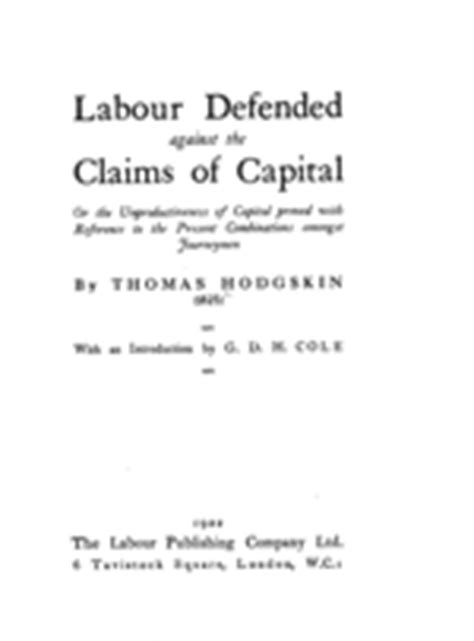A Quote by William Godwin
As the true object of education is not to render the pupil the mere copy of his preceptor, it is rather to be rejoiced in, than lamented, that various reading should lead him into new trains of thinking.
Related Quotes
The great object of Education should be commensurate with the object of life. It should be a moral one; to teach self-trust: to inspire the youthful man with an interest in himself; with a curiosity touching his own nature; to acquaint him with the resources of his mind, and to teach him that there is all his strength.
A tutor should not be continually thundering instruction into the ears of his pupil, as if he were pouring it through a funnel, but, after having put the lad, like a young horse, on a trot, before him, to observe his paces, and see what he is able to perform, should, according to the extent of his capacity, induce him to taste, to distinguish, and to find out things for himself; sometimes opening the way, at other times leaving it for him to open; and by abating or increasing his own pace, accommodate his precepts to the capacity of his pupil.
Often nothing keeps the pupil on the move but his faith in his teacher, whose mastery is now beginning to dawn on him .... How far the pupil will go is not the concern of the teacher and master. Hardly has he shown him the right way when he must let him go on alone. There is only one thing more he can do to help him endure his loneliness: he turns him away from himself, from the Master, by exhorting him to go further than he himself has done, and to "climb on the shoulders of his teacher."
Men had better be without education than be educated by their rulers; for their education is but the mere breaking in of the steer to the yoke; the mere discipline of the hunting dog, which, by dint of severity, is made to forego the strongest impulse of his nature, and instead of devouring his prey, to hasten with it to the feet of his master.
In teaching, you must simply work your pupil into such a state of interest in what you are going to teach him that every other object of attention is banished from his mind; then reveal it to him so impressively that he will remember the occasion to his dying day; and finally fill him with devouring curiosity to know what the next steps in connection with the subject are.
Plato--who may have understood better what forms the mind of man than do some of our contemporaries who want their children exposed only to "real" people and everyday events--knew what intellectual experience made for true humanity. He suggested that the future citizens of his ideal republic begin their literary education with the telling of myths, rather than with mere facts or so-called rational teachings.
The early Christians made it a part of their religion to look for His return. Backward they looked to the cross and the atonement for sin, and rejoiced in Christ crucified. Upward they looked to Christ at the right hand of God, and rejoiced in Christ interceding. Forward they looked to the promised return of their Master, and rejoiced in the thought that they would see Him again. And we ought to do the same.
The man who is an initiate of one of the great Mystery Schools never fears to let his pupils outdistance him, because he knows that it stands him in good stead with his superiors if he is constantly sending up to them aspirants who 'make good.' He therefore never tries to hold back a promising pupil, because he has no need to fear that pupil, if allowed to penetrate into the Mysteries, would spy out the nakedness of the land; he will rather bring back a report of its exceeding richness, and thereby confirm the statements of his teacher and spur his fellow pupils to yet greater eagerness.
Hamlet 's character is the prevalence of the abstracting and generalizing habit over the practical. He does not want courage, skill, will, or opportunity; but every incident sets him thinking; and it is curious, and at the same time strictly natural, that Hamlet, who all the play seems reason itself, should he impelled, at last, by mere accident to effect his object. I have a smack of Hamlet myself, if I may say so.
There is, I think, no point in the philosophy of progressive education which is sounder than its emphasis upon the importance of the participation of the learner in the formation of the purposes which direct his [sic] activities in the learning process, just as there is no defect in traditional education greater than its failure to secure the active cooperation of the pupil in construction of the purposes involved in his studying.






































